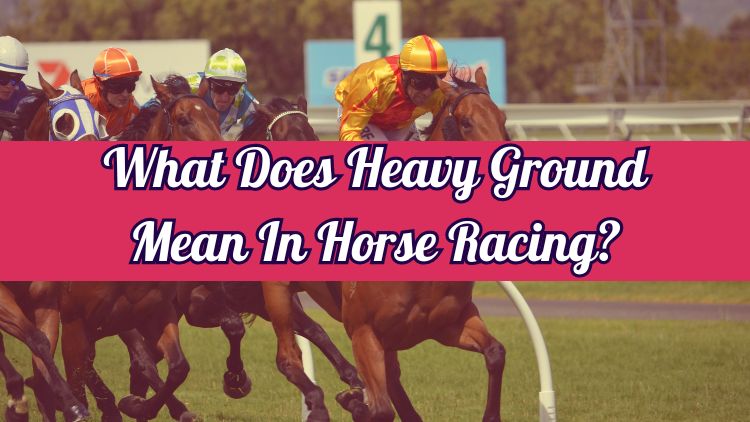
In horse racing, the term "heavy ground" describes the condition of the racecourse's surface. When rain has made the ground very wet and soft, it is often referred to as heavy ground.
This type of ground can significantly impact the horses' performance. Horses find it more challenging to run quickly on heavy ground, and it also demands more effort from them.
Understanding ground conditions is crucial because it helps in predicting which horses may perform better or struggle in a race. Some horses excel on heavy ground, while others do better on firmer surfaces.
Knowing what heavy ground means can help expand your horse racing knowledge, whether you're a long-time fan or a beginner punter.
What Is Heavy Ground In Horse Racing?
Heavy ground is a specific term used to describe very soft track conditions in horse racing. This occurs after a significant amount of rainfall, making the racecourse wet and muddy.
The texture of heavy ground is much looser than that of dry or firm ground. As a result, horses can sink deeper into the surface, which slows them down and means running requires more energy.
These conditions can affect the outcome of the race, as some horses might struggle while others, often referred to as "mudlarks", thrive in such environments. Therefore, trainers and jockeys consider a horse's ability to handle heavy ground when preparing for races.
Understanding heavy ground and how the different horses handle it can help in making better-informed betting decisions. It can help you to understand what is happening if your favourite horse might not be performing as well on a muddy track after heavy rainfall.
What Does "Heavy And Soft" Mean In Horse Racing?
In horse racing, the terms "heavy" and "soft" refer to the condition of the racecourse's surface.
"Soft" ground is less extreme than heavy ground, but it still means it's pretty wet and yielding. This happens after moderate rainfall, making the surface spongy but not overly muddy.
"Heavy" ground, on the other hand, is the result of more substantial rainfall, which makes the track extremely wet and muddy. Horses sink deeper into heavy ground, making it the most challenging condition for racing.
Both conditions require horses to exert more energy, impacting their speed and stamina. Some horses perform better on softer ground, while others excel on heavier terrain.
Understanding these terms helps fans and punters know what to expect during a race. The ground conditions can significantly influence the horses' performance and, by extension, the race's outcome.
Do Some Horses Run Better On Heavy Ground?
Yes, some horses do run better on heavy ground. As we mentioned earlier, these horses are often referred to as "mudlarks".
Mudlarks have a unique ability to handle the demanding conditions of a wet and muddy racecourse. They seem to excel where other horses might struggle.
Several factors play a role in a horse's ability to perform well on heavy ground. The physical build of the horse, their experience running on similar surfaces, and sometimes their breeding can make a difference.
Trainers often look at a horse's past performances to see if they have a history of doing well on heavy ground. This information helps in deciding which races to enter.
Knowing that some horses are better suited for heavy ground can be useful. It allows you to make better-informed decisions when watching a race or placing a bet.
Remember to always gamble responsibly and appreciate that the weather and ground conditions are just some of the uncontrollable factors, which means that anything can happen on race day, and no results are ever assured.
